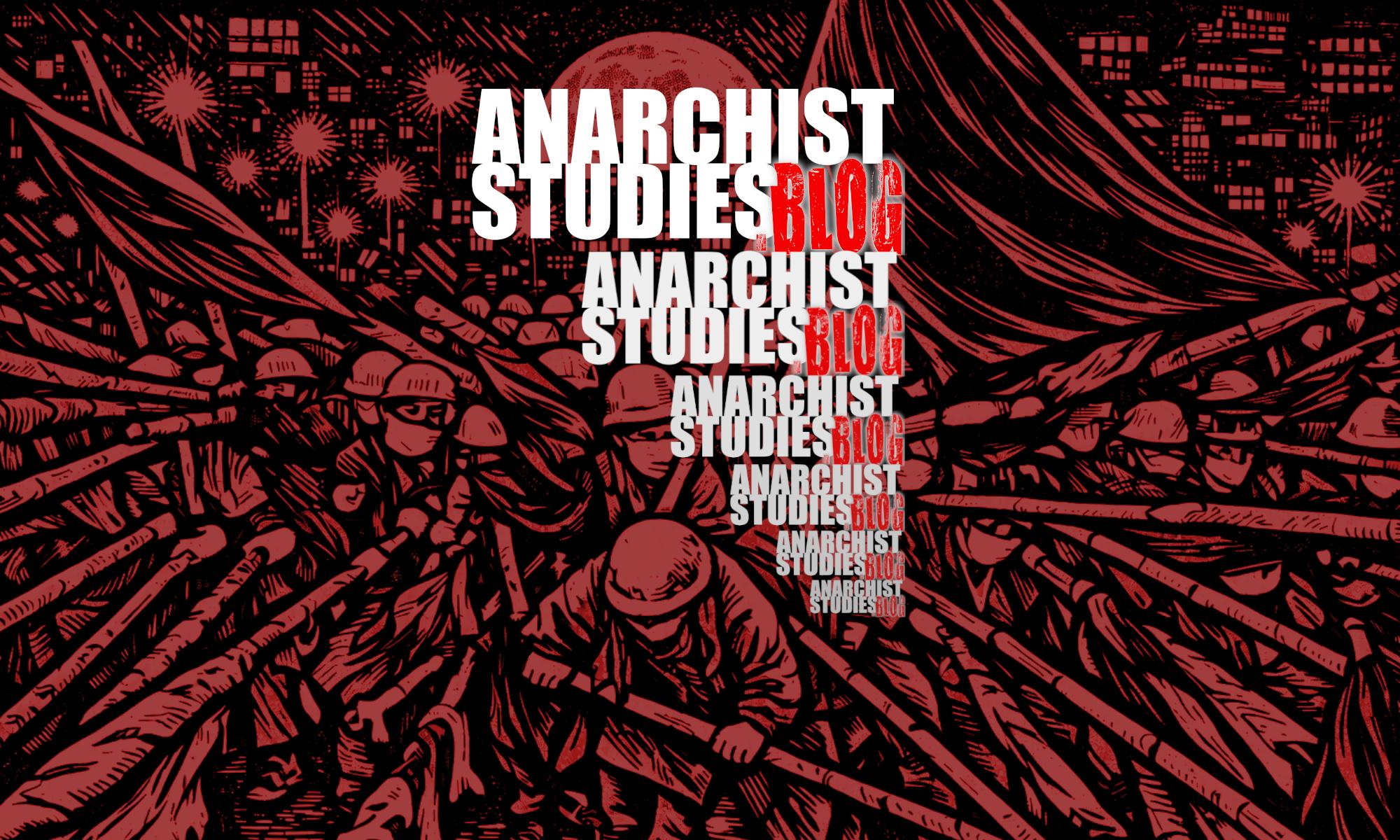Following the publication of his new book The Making of Kropotkin’s Anarchist Thought: Disease, Degeneration, Health and the Bio-political Dimension, Richard Morgan remembers a draft chapter that didn’t make the cut.
ASN6: The Ecstatics – Michel Foucault’s Concept of Political Spirituality
Concluding our Anarchist Studies Network Conference series, Teresa Xavier Fernandes analyses a Foucauldian ‘political spirituality’, especially as it emerges from Foucault’s writings on Iran and the influence of Sufi Islam.
‘Was the philosopher Michel Foucault an ecstatic? In my view, the answer is yes … Foucault found himself in this mystic and Sufi Iran, where he could check, observe and experiment with his fundamental concept of political spirituality’.
The Ecstatics – Michel Foucault’s Concept of Political Spirituality
ASN6: ‘Find and lose each other!’ On An-archic affinities and nomadic institutions
The next article in our Anarchist Studies Network Conference series is contributed by Christos Marneros, who draws on Deleuze to analyse the relationship between ‘law’ and ‘anarchy’, distinguishing institutions from the idea of law, and highlighting the figure of the nomad as a counter to the obedient subject. This an-archic jurisprudence is:
‘in a constant opposition and strife against the dogmas and hierarchies of any state apparatus, and it should be ready to respond adequately to any assault coming from them. It has to possess a lethal instinct ready to destroy any form of dogmatism … refusing to compromise and to be “pacified”’.
‘Find and lose each other!’ On An-archic affinities and nomadic institutions
ASN6: The Libertarian Elements in the Philippine Archipelago
Continuing our series of articles drawn from the 6th International Anarchist Studies Network Conference, Simoun Magsalin discusses contemporary and historical examples of anarchism in the Philippine archipelago. Part analysis, part call to action, he identifies existing liberatory practices in order to contextualise anarchism alongside indigenous Filipino traditions of resistance to colonialism and co-operation.
‘Libertarian elements – mutual aid/bayanihan, direct action and egalitarian organizing – are then not foreign ideas. They already exist today in our lives and in our contexts. The task of the anarchists in the archipelago is to identify these elements and contextualize these for an anarchist praxis’.
ASN6: Direct Action as Conflicting Practices of Equality and Autonomy
As part of our series of articles drawn from the 6th International Anarchist Studies Network Conference, Nora Ziegler argues that direct action is animated by the conflicting ideals of equality and autonomy, and that this is a creative, necessary and welcome conflict.
‘It is not possible to establish equality by saying “we are all the same” or freedom by saying “we are all different”. Instead, when I hear you say “we are all the same”, I say “no I’m different” and when I hear “we are different” I say “but I am the same as you!” Only through these moments of conflict can my equality and freedom be established’.
Direct Action as Conflicting Practices of Equality and Autonomy
In Memoriam – Jeffrey S. Juris
Jeffrey Juris passed away on June 18, 2020 after a year-long battle with brain cancer. This dedication to Jeff, by his comrades Alex Khasnabish and Luis Fernandez, pays tribute to an outstanding scholar-activist with a true anarchist spirit who contributed directly to struggles for social justice.
Anarchy and Police Brutality: May Day 2019 in Bandung, Indonesia (photo essay)
A police officer approached me and asked, ‘why are you wearing a helmet?’ I returned the question, ‘why are you wearing a helmet?’ He replied that it was ‘for safety’. ‘Same here, for safety’ I nodded. ‘Safety from whom?’ asked the cop. ‘Safety from you’ I replied, and then he was gone.
This photo essay by Frans Ari Prasetyo provides a vivid depiction of the scale and energy of the May Day 2019 black bloc demonstration in Bandung, Indonesia, and the brutality of the ensuing police repression.
Anarchy and Police Brutality: May Day 2019 in Bandung, Indonesia (photo essay)
Freedom and Anarchy: an interview with David Graeber
‘That’s what I try to do a lot. I try to find things we already know, but don’t quite realise that we knew’.
David Graeber’s death on the 2nd of September 2020 causes a painful break in the human connections he had inspired and frustrates the promise of future works. But what we have gained from his life is incalculable, and will still reverberate for a long time everywhere there is resistance and hope for a better future.
This wide-ranging interview with David Graber, by Peterson Roberto da Silva, covers themes of play, violence, privilege, activism, equality, the value of work and care, and freedom, while communicating David’s wit, fierce intelligence, and fiercer-still humanity.
Scrub Hub – an autonomous mutual aid response to Covid-19
The death of almost 65,000 people so far in the UK as a consequence of Covid-19 is the strongest possible indictment of the Tory government’s botched response, but the failure to provide Personal Protective Equipment (PPE) to health workers illustrates some of the character of their callous incompetence. The Scrub Hub initiative has been a particularly successful grassroots mutual aid response to the PPE scandal, blossoming into 127 Scrub Hub groups across England, Scotland and Wales. Jim Donaghey met (virtually) with Katya Lachowicz, one of the core members of a Scrub Hub in East London.
Cybernetics and Mutual Aid in the Coronavirus Crisis
Thomas Swann, author of the forthcoming book Anarchist Cybernetics, provides an overview of cybernetics as the identification of universal principles of self-organisation, and connects this with anarchism and mutual aid. In the context of the present coronavirus crisis, he argues that an engagement with cybernetics can help anarchists and others involved in mutual aid networks to think seriously about organisational structure to address problems such as structural hierarchies and to protect their openness to democratic participation.
The Anarchist Cybernetics of Mutual Aid. Self-organisation in and Beyond the Coronavirus Crisis
